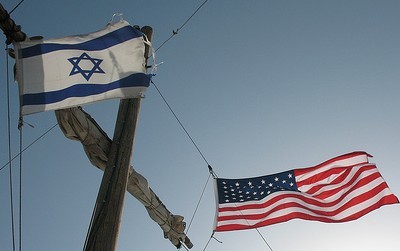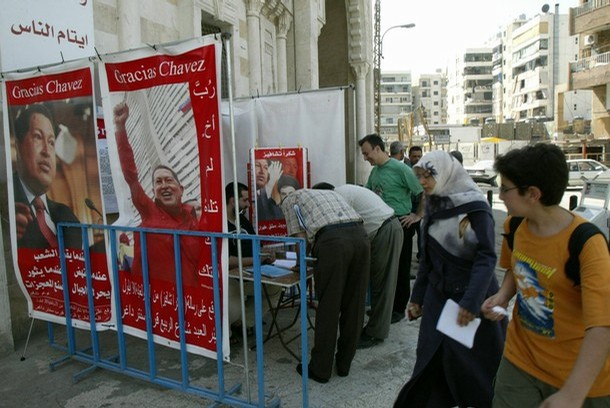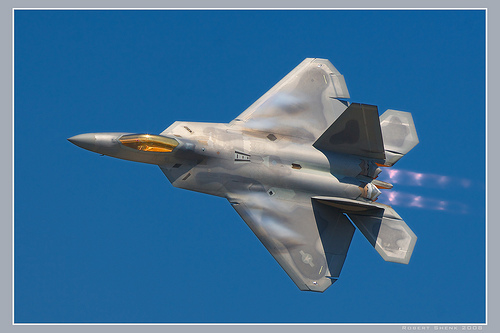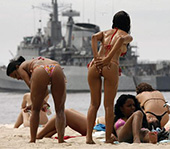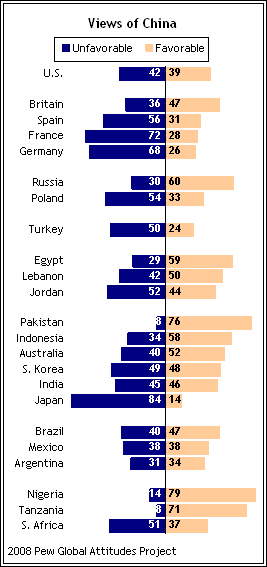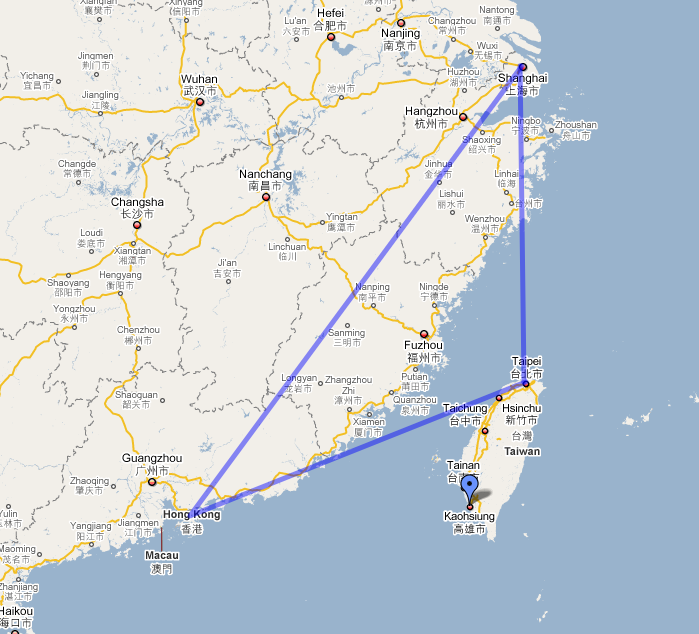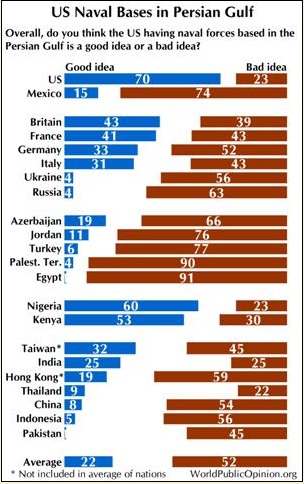The big news of the year in Latin America undoubtedly was the successful rescue operation carried out by the Colombian military, which released French-Colombian politician Ingrid Betancourt, Americans Thomas Howes, Keith Stansell and Marc Gonsalves, and eleven Colombian officers and NCOs. The success of this operation, which required near perfect execution by a military that only a few years ago could rarely be trusted, dealt a blow to Hugo Chavez’s dream of a Bolivarian empire in Latin America and changed the balance of power in the region away from Chavez. By year's end, Brazil also gained a much higher profile, stealing the limelight from Chavez by becoming a diplomatic power.
But let’s start in January:
The price of oil at the beginning of the year was $100 for Texas crude. In December 2007 Hugo Chavez had lost a referendum on amending the Venezuelan constitution which would have granted him unlimited terms and nearly unlimited powers. People were still using “Por que no te callas” ringtones in their cell phones. The best-selling ringtone used King Juan Carlos’s of Spain’s retort, and relations between Spain and Venezuela had become strained. At year's start, Chavez was proposing the rescue of three hostages, which was rumored to involve the payment of $500 million. The rescue did go through, but not as planned. The son of one of the women, who supposedly was going to be released at that time, not only had already been released, but was living in a Bogota orphanage.
On March 1, 2008, Colombia raided a FARC permanent encampment in Ecuador, killing its #2 man and 16 other FARC members. Chavez impulsively ordered, during one of his Alo, Presidente TV shows, that the Venezuelan army mobilize to the Colombian border and prepare for war. The Venezuelan army took its time, got tied up on the highway by a taxicab drivers’ strike, and nothing came of the threat.
The raid killed the FARC’s number two man, Raul Reyes, and the Colombian military seized three computers that belonged to him. The laptops revealed that
- Chavez has direct links to the FARC, which go back a long time, including $50,000 the guerilla had given him while he was in prison after his failed 1992 coup.
- 'Ivan Marquez', another member of the FARC secretariat, acknowledged Chavez's $300million contribution to the guerilla
- Ramon Rodriguez Chacin, Venezuelan Minister of Interior and Justice, keeps permanent contact with the FARC and has arranged for meeting - according to correspondence dated October 8, 2007 - "without the knowledge of the Colombian government."
- In an email sent to the highest FARC leader 'Manuel Marulanda' a.k.a. Tirofijo, two Secretariat members, 'Ivan Marquez' and 'Rodrigo Granda' mention ongoing FARC businesses in Venezuela. They mention oil quotas to be negotiated overseas and FARC investments in the country.
This Interpol report confirmed the authenticity of the information retrieved from the laptops. The FARC files also revealed the
Swiss Department of Foreign Affairs (EDA) supported the FARC.
In Bogota, Colombia’s National Defense Ministry seized 14 kilos of low-grade uranium belonging to the FARC, based on information revealed in the laptops. By late May, the FARC announced that their leader “Tirofijo” had died of a heart attack in March.
Colombia continued to progress in its fight against the FARC, but in the USA, Nancy Pelosi’s congress voted to delay indefinitely the vote on granting the Free Trade Agreement between Colombia and the US. Latin American media referred to this vote as the Chavez Rule, as
Free trade was what Chavez's enemy, Colombian President Alvaro Uribe, considered his best weapon.
Also in March, former Bishop Fernando Lugo was elected president of Paraguay.
Chavez, a big friend of Lugo, was rumored to have provided financial support to his campaign.
The rumor was not far-fetched, considering that US authorities caught Guido Antonini carrying $800,000 in a suitcase that Hugo Chavez was sending to Cristina Fernandez de Kirchner’s electoral campaign in Argentina. The case, named “Maletinazo” in the Latin American press, made the headlines all over Latin America. Five of the accused were tried in Florida and so far three have been pronounced guilty.
Democrat presidential hopeful and governor of New Mexico Bill Richards on visited Caracas in April to ask Chavez to intercede for three American hostages, Keith Stansell, Marc Gonsalves and Thomas Howes held by the FARC. Instead, the Colombian military, with the support of American technology and training, was able to rescue the three Americans in an operation comparable to Entebbe, along with twelve other high-value hostages, including the FARC’s most famous hostage of all, Ingrid Betancourt. Following her release, Betancourt left for France. She returned to South America in December, when she visited Chavez who she thanked for his part on her release, Rafael Correa in Ecuador, Alan Garcia in Peru, Cristina Fernandez de Kirchner in Argentina, and Michelle Bachelet in Chile, but did not visit Colombian president Alvaro Uribe.
Hugo Chavez’s characteristic bluster did not abate during 2008, and on June 19 he threatened to cut the Venezuelan oil supply to the EU if the EU were to apply a new ruling on illegal immigration; he later backtracked. By the end July Chavez softened his approach, and patched his differences with King Juan Carlos of Spain. After the King told Hugo to shut up in November 2007, it took 10,000 barrels of oil/day at $100 ($25 under market price) for things to go back to chummy.
Chavez not only traveled to Spain in July, but also to Russia, who for a while has been proposing the creation of a natural gas OPEC-like cartel. During the Russia trip Chavez also discussed the purchase of $5 billion worth of military hardware to Venezuela, including 20 modern surface-to-air missile systems and three diesel submarines. Arrangements for joint Venezuela-Russia war games in the Caribbean were made during that visit, and the war games took place in November. While still on that trip, Russian ships arrived in Cuba in December for the first time since the Cold War. Russian president Medvedev visited Caracas this month at the start of the military exercises.
During 2008 Chavez also strengthened his ties with Iran, Hamas and Hezbollah (as you read in my Real Clear World Blog post this week). Venezuela last week denied that Iran is using Venezuela to dodge UN sanctions and use Venezuelan aircraft to ship missile parts to Syria, as reported by Italian newspaper La Stampa.
While Colombia gains in the war on drugs and terrorism (including breaking up an African drug ring with Hezbollah ties), Venezuela is allowing the FARC to wield power in Venezuela. Internal security in Venezuela declines dramatically as kidnappings and murders increase tenfold, and Venezuela becomes the #1 port of departure for cocaine shipments.
Recently Chavez has increased pressure on the opposition and the main leader of the opposition is facing charges.
Earlier in 2008 Latin American economies as a whole enjoyed the boon in oil prices and commodities, but as the world financial crisis developed, only Chile is positioned to initiate countercyclical measures by having set aside a $21 billion special fund from copper revenues. During this economic crisis, Brazil's president Lula hosted the first Latin American and Caribbean Summit on Integration and Development, calling for “prudence and political diplomacy" towards the upcoming Obama administration, a different tone from that of Chavez
The Venezuelan economy is hugely dependent on oil, which, as of the writing of this post, is trading at under $40/bb for Texas crude; Venezuelan oil trades at a lower price. At the same time, oil production continues to decline and the country’s oil imports have surged by 150 percent between the first quarter of 2007 and the same period this year.
Hugo Chavez continued to nationalize private enterprise in the country (from banks and the cement industry to food production and shopping malls), and the country is suffering from high inflation, high crime, food shortages, power outages, and capital and exchange controls. The Economist Intelligence Unit’s six-monthly business-environment index rated Venezuela as the second-worst place in the world to do business, sandwiched between Cuba and Angola at the very bottom of the list.
Coming up in 2009: another referendum on amending the constitution to allow indefinite presidential re-elections. Chavez said last week that if he doesn’t get this proposal, "I would begin to pack my bags, count my remaining months and years, and work intensely to prepare for ... whoever comes after me." According to the current constitution, his term would end in February 2013.
Fausta Wertz also blogs at faustasblog.com.

